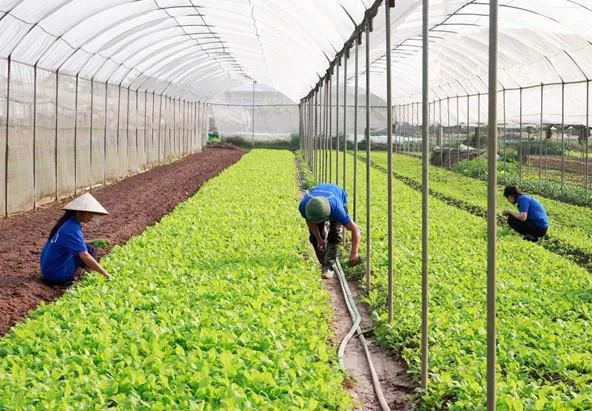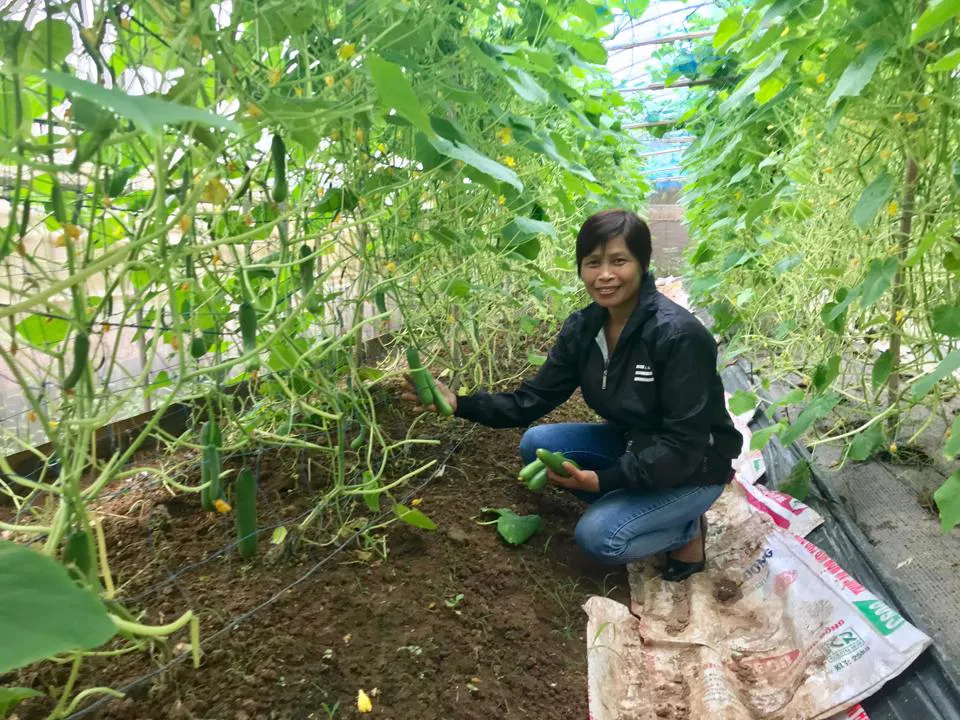Hanoi facilitates agricultural cooperatives
The Hanoi authorities will create conditions for cooperatives to form value chains for agricultural products.
Hanoi is providing many solutions and adjusting policies to comprehensively innovate and develop agricultural cooperatives in the city.
The move results from the important role of agricultural cooperatives in promoting the city’s agricultural sector, contributing to restructuring the sector and building a new countryside model.
Production area of Chuc Son Clean Vegetable Cooperative in Hanoi’s Chuong My District. Photos: Anh Ngoc/ The Hanoi Times |
However, Hanoi's cooperative economic sector continues to struggle. As of August 2022, Hanoi was home to more than 1,300 agricultural cooperatives, accounting for more than 58% of the total number of cooperatives in the city. About 80% of the agricultural cooperatives are in operation.
Deputy Head of the Hanoi Sub-Department of Rural Development Hoang Thi Huyen said that roles and positions of agricultural cooperatives have not fully been harnessed and are not commensurate with the capital city’s potential and advantages.
"The ratio of agricultural cooperatives with and application of high technology remains low. In addition, poor infrastructure namely transportation, irrigation, and electricity in the fields in some localities has failed to meet the requirements of the agricultural sector," Huyen told The Hanoi Times.
Clear targets
To boost the development of mass production, the Hanoi People's Committee October 25, 2022, issued a decision on strengthening agricultural cooperatives in the city for the period of 2022 - 2025, with an orientation to 2030.
Cuoi Quy High-tech Organic Vegetable Production Cooperative in Hanoi’s Dan Phuong District). |
Accordingly, the city has set seven targets for 2025, including the establishment of 150 or more new agricultural cooperatives, 100% of communal cooperatives should join the construction of new rural areas, and at least 60% or more of agricultural cooperatives should achieve good results.
To achieve the above goals, Hanoi will focus on having supporting policies for agricultural cooperatives with specific assistance to digital transformation, circular economy, and organic and ecological farming.
In addition, the local authorities will also create conditions for agricultural cooperatives to form linkages in the value chain of agricultural products; develop the planting zone code associated with the development of the material zone and product traceability.
As for policy recommendations, Hoang Xuan Truong, deputy director of the Center for Agricultural Systems Research and Development of the Vietnam Academy of Agricultural Sciences, told The Hanoi Times that Hanoi should continue to establish specialized and multi-trade cooperatives and promote the development of green cooperatives.












